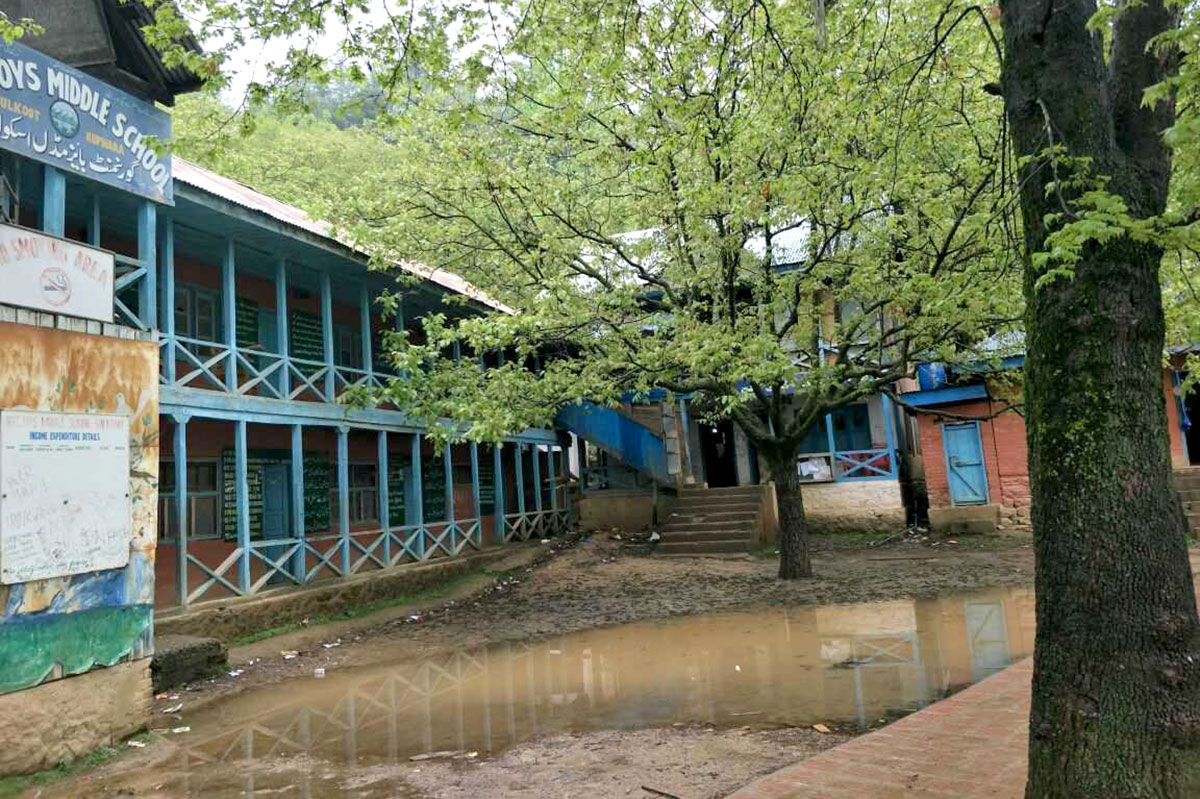SRINAGAR: Govt. College of Education, Institute of Advanced Studies Srinagar organized a two-day national conference on the Implementation of NEP-2020 in Higher Education Institutions under the initiative of India’s Presidency of G20.
The two-day national conference on the National Education Policy 2020 kicked off with an inaugural session on March 1st. The event began with Dr Seema Naz, Principal of the host institution, welcoming all the guests. In her address, she highlighted the achievements of the institution in the field of teacher education and its recent Grade A accreditation for the third consecutive time under the 2023 NAAC accreditation.
Fazl Illahi, the Coordinator of the conference, then read the backdrop of the conference, where he deliberated on the major reforms proposed in the policy and suggested a roadmap for teacher education institutions. The keynote address was delivered by Prof. Manisha Priyam from the Department of Education Policy, Ministry of Education, NIEPA. In her address, she explored the issue of multidisciplinarity in terms of languages and discussed the ‘new precepts in NEP-2020.’
Prof. Sanjeev Sonawane, Pro Vice Chancellor, Savitribhai Phule University, Pune, in his special address, highlighted the importance of engaging the learner, the need for better teacher preparation for the new role, creation of research ecosystems, and the internationalization of higher education. Finally, Dr. Nazir Ahmad Bhat initiated the vote of thanks, and the session was moderated in chaste Urdu language by Prof. Abdul Gani Kumar.
The conference aimed to discuss the ground realities, institutional preparedness, curriculum, manpower, institutional goals, research, pedagogy, assessment, infrastructure, courses offered, and ICT integration, among other things. The panel discussions that followed brought together several eminent academics who shared their insights on the operationalization of the National Education Policy 2020.
The panel discussion on the theme ‘NEP-2020, Making It Happen’ was held on the second day of the conference, and several renowned professors and experts in higher education participated in the discussion. The discussion revolved around the different aspects of NEP-2020, including ground realities, institutional preparedness, curriculum, manpower, research, pedagogy, assessment, infrastructure, courses offered, and ICT integration. The panelists also discussed the challenges and issues in implementing NEP-2020 and how institutional development plans (IDPs) can help customize the needs of higher education institutions for the successful implementation of NEP-2020.
During the panel discussion, Prof. Yasmeen Ashai, Director of Colleges at the Higher Education Department, emphasized the importance of considering ground realities, institutional preparedness, curriculum, manpower, institutional goals, research, pedagogy, assessment, infrastructure, courses offered, and ICT integration when implementing NEP-2020. She also highlighted the role of the Institutional Development Plan (IDP) in customizing the needs of higher education institutions.
Other experts, including Prof. Sanjeev Sonawane, Prof. Farooq Masoodi, Prof. Mahmood Ahmad Khan, Dr. K. Ratnabali, and Dr. Geetanjali Kale, spoke about various aspects of implementing NEP-2020, such as the provision of the credit system, learning activities, teaching to research, institutional collaboration, sustainability, collaboration with industry, recruitment of teachers, assessment, student diversity, innovation, and academia-industry linkages.
In the valedictory session, Conference Coordinator Mr. Fazl Illahi presented a detailed report of the two-day conference. Prof. Yasmeen Ashai highlighted the need for all higher education institutions to have vibrant centers for career counseling and research. She also discussed the initiatives taken up by the Department of Higher Education in Jammu and Kashmir regarding the implementation of NEP-2020.
The conference provided a platform for experts to discuss the various aspects of implementing NEP-2020 and highlighted the importance of considering ground realities, institutional preparedness, and collaboration with the industry for successful implementation.
The conference concluded with a valedictory session, where the conference coordinator presented a detailed report of the event, and the Director Colleges, Higher Education Department, Jammu and Kashmir emphasized the need for vibrant centers of career counseling and research in all higher education institutions.














